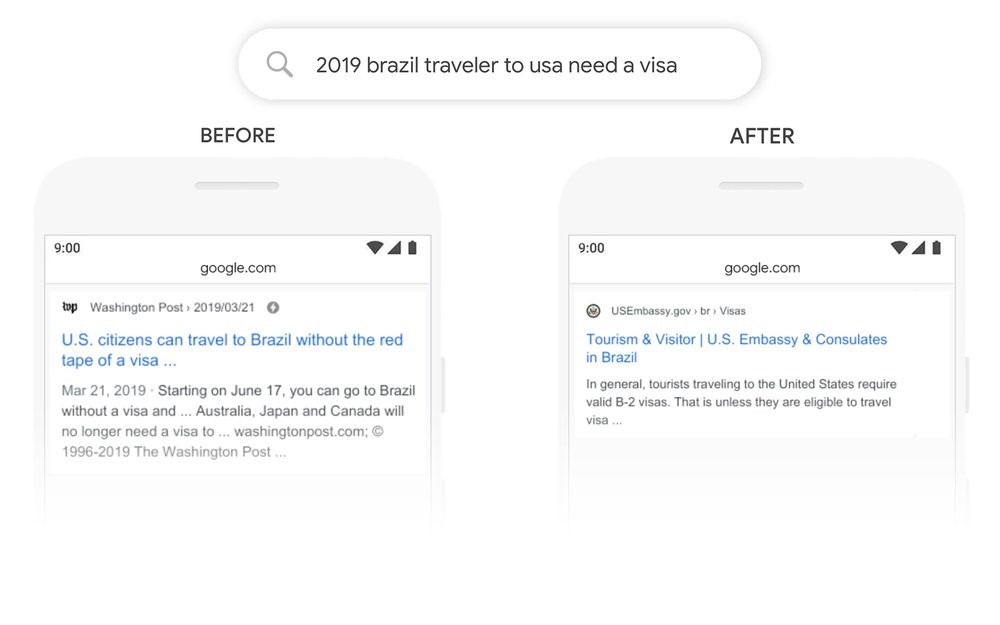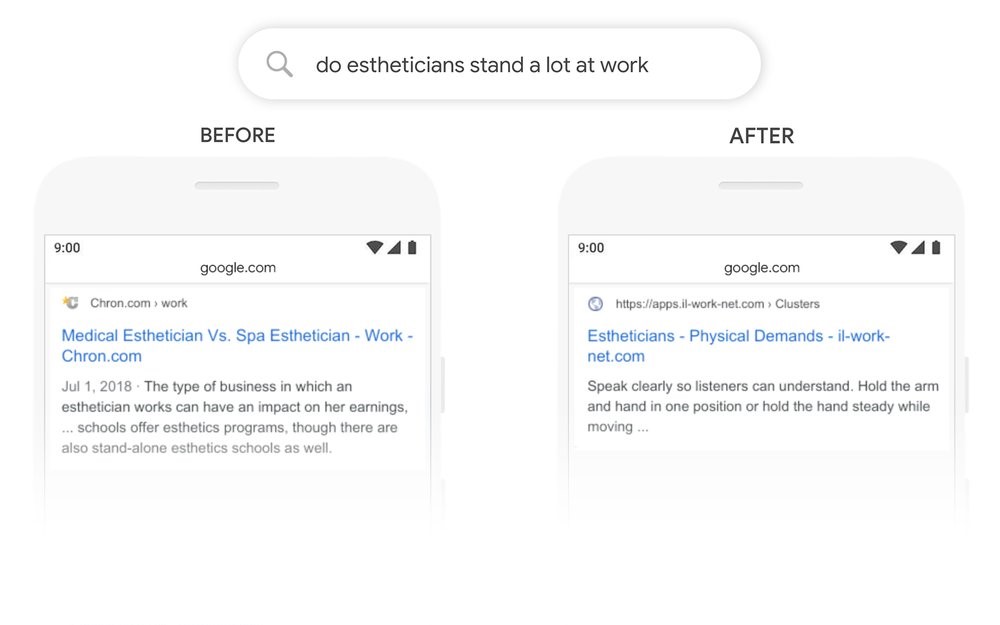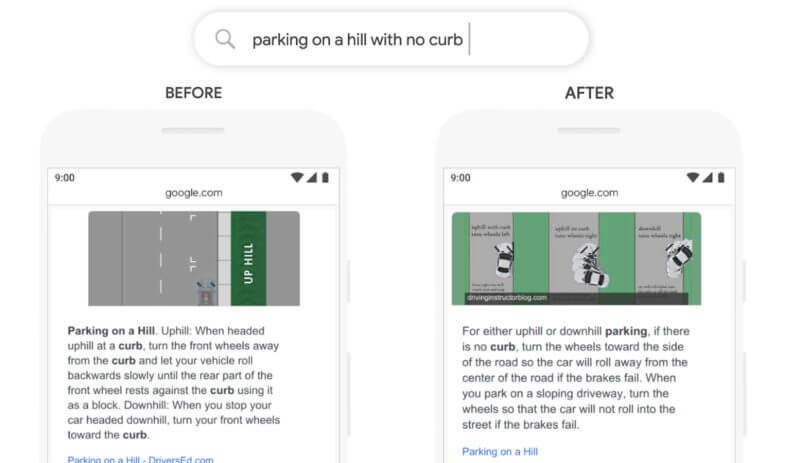BERT: Google’s Biggest Search Change Since 2015
On Friday, October 25th, Google announced their biggest change to their Search algorithm since they released their RankBrain program in 2015. The new network-based search technique is known as Bidirectional Encoder Representations from Transformers, or just BERT for short.
What does that long acronym mean and how will it affect Google searches?
Good question – and I am glad you asked. To put in bluntly, BERT is designed to help provide search results that contain the desired information from the whole query, not just individual words or segments. This release aims to make searches in English (other languages are still being worked on and are expected to release in the future) more effective at consistently giving the desired results for queries.
Look at this example released by Google:

Another example from Google:

Is this the only change under BERT?
No, there’s more to it than just that. Google has also changed the value they give to whole phrases as opposed to specific words when it comes to their featured snippets.
Google provided this example:

The Affects of BERT
At this point you may be wondering:
That all sounds great, how does this affect my site?
Google predicted that this change will affect 1 in 10 English searches in the U.S., so even if your normal traffic is not affected right away, as your website traffic you will inevitably be subjected to the BERT changes.
Moreover, these changes are likely to affect your web traffic in the short run, words and phrases your page used to rank for consistently may not be as effective as they once were. When Google released their RankBrain changes to searches, sites had to adapt to those changes. RankBrain was Google’s first major artificial intelligence program for deciphering search queries, but now in order to keep up with the new big series of changes, marketers are going to have to adapt again.
How to Handle the New World of BERT
What should I do so I do not lose traffic?
First and foremost, there needs to be a greater emphasis on quality not quantity. One strategy that was commonly accepted to be effective in search engine optimization was to create longer content. However, this new algorithm does not care about word count, they rank for quality relevant to the search query.
The perfect example of this change can be seen in the first comparison Google provided to us. The Washington Post article that used to come up first is an adequate length article, expertly optimized for readability and ranking. Even though its site is far more prepared to attract clicks the federal government website about visas is, from now on that will not matter. Sites cannot rely on the accidental attention of irrelevant searches anymore.
Let me say that again, sites cannot rely on the accidental attention of irrelevant searches anymore, that means the traffic your site is most vulnerable to lost is traffic that is not relevant to your site. If your website is dedicated to converting clicks into customers, then this can be of benefit to your site.
Neil Patel posted an in-depth article about how BERT will affect content marketing; this change presents a unique opportunity to focus on long tail search terms which will directly mirror that of search queries that people actually search for.
Conclusion
Google has changed their search algorithm in a big way. Google has released BERT with the purpose of being far more receptive to how people type in searches. The search results are now going to be more cognizant of whole search phrases not just keywords in the phrases.
BERT is going to change the strategy the digital marketers must employ to get their websites to rank higher. Fortunately, this change will eliminate unintended web traffic, which is especially valuable to sites which really seek to turn clicks into customers. If you are looking to prepare your site for the upcoming changes brought on by Google, look no further than Maltese Marketing. We here at Maltese Marketing are a Grand Rapids based digital marketing company who services clients across the country, we stay up to date on the latest trends in Search Engine Optimization so we can provide the best results to our customers.
To see if Maltese Marketing is the right fit for business’s needs, connect with us today!
